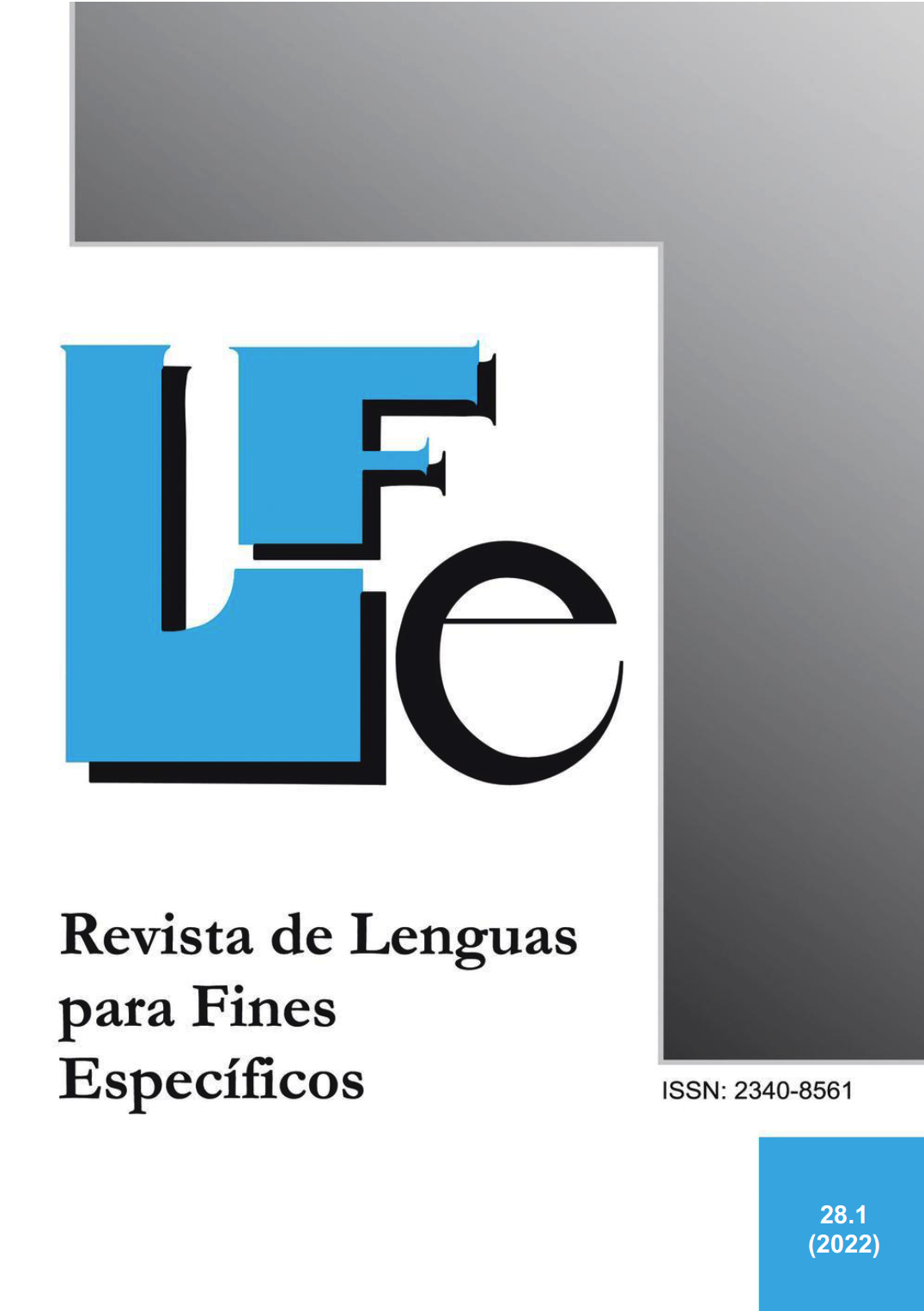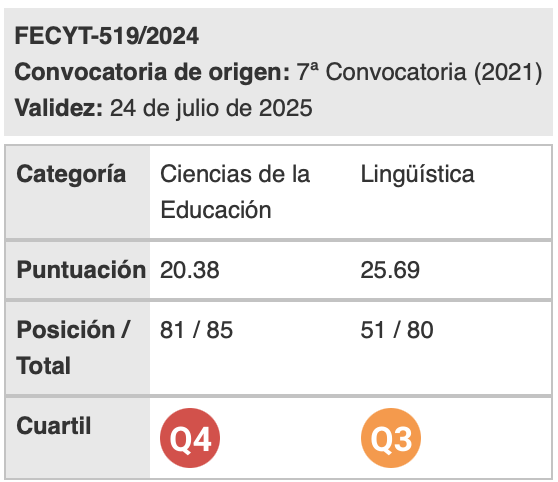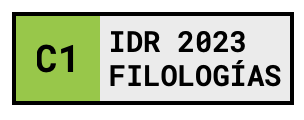Telecollaborative Projects for Teaching English for Professional and Academic Purposes
Keywords:
Telecollaboration, Project Work, English Language Teaching, Language for Specific PurposesAbstract
Implementing the project-based approach in telecollaborative environments seems to be helpful in the foreign language classroom. This research aims to analyze the perception of students on the need to communicate internationally following the classification of the most usual communicative situations proposed by Lehman and DuFrene (2013). To this purpose, an experiment was implemented among students from the Polytechnic University of Valencia (UPV) and Igor Sikorsky Kyiv Polytechnic Institute (KPI) during the spring term in the schoolyear 2020/21. Students from both universities worked virtually in mixed international teams on their projects to create blogs on the topic 'Sustainable development today’. Our results showed that students from both institutions enhanced their confidence in communicating in professional and academic contexts during the completion of this project. Participants improved their communicative competence in international online environments, and this virtual exhange experience helped them develop their digital and intercultural skills, among others. The value of this research is the implementation of a telecollaborative project work in the foreign language classroom aiming at helping students communicate in a global context about technical issues, such as sustainability.
Downloads
References
Alcaraz Varó, E. (2000). El inglés profesional y académico. Madrid: Alianza Editorial.
Boytcheva, S., Kalaydjiev, O., Nenkova, A., & Angelova, G. (2002). Integration of resources and components in a knowledge-based Web-environment for terminology learning. In S. A. Cerri & D. Dochev (Eds.), Artificial Intelligence: Methodology, Systems, and Applications (pp. 210-220). Heidelberg: Springer.
Brataas, G., Hughes, P., & Sølvberg, A. (1994). Integrated management of human and computer resources in task processing organizations: a conceptual view. In T. N. Mudge (Ed.) Hawaii International Conference on System Sciences (pp. 703-712). Hawaii: IEEE.
Casañ-Pitarch, R., & Candel-Mora, M. Á. (2021). Developing Language, Content, and Digital Competence through International Telecollaborative Project Work. Teaching English with Technology, 21 (1), 29-47. <https://eric.ed.gov/?id=EJ1283493> [01/02/2022].
Casañ-Pitarch, R., Candel-Mora, M. Á., Carrió-Pastor, M. L., Demydenko, O., & Tikan, I. (2020). Enhancing Language and Cross-Cultural Competence through Telecollaboration. Advanced Education, 7 (16), 78–87. <http://ae.fl.kpi.ua/article/view/214539> [01/01/2022].
Chacón, T. C. (2012). Task-based language teaching through film-oriented activities in a teacher education program in Venezuela. In A. Shehadeh & C. Coombe (Eds.), Task-based language teaching in foreign language contexts research and implementation (pp. 241–266). Philadephia: John Benjamins.
De Graaf, E., & Kolmos, A. (2003). Characteristics of problem-based learning. International Journal of Engineering Education, 19 (5), 657-662. <https://www.ijee.ie/articles/Vol19-5/IJEE1450.pdf> [01/01/2022].
Dooly, M. (2017). Telecollaboration. In C. A. Chapelle & S. Sauro (Eds.), The handbook of technology and second language teaching and learning (pp. 169-183). Hoboken: Wiley Blackwell.
Ellis, R. (2003). Task based language learning and teaching. Oxford: Oxford University Press.
Ellis, R. (2009). Task-based language teaching: Sorting out the misunderstandings. International Journal of Applied Linguistics, 19 (3), 221-246. <https://onlinelibrary.wiley.com/doi/10.1111/j.1473-4192.2009.00231.x> [01/01/2022].
Godwin-Jones, R. (2019). Telecollaboration is an approach to developing intercultural communication competence. Language Learning & Technology, 23 (3), 8–28. <https://scholarspace.manoa.hawaii.edu/bitstream/10125/44691/23_3_10125-44691.pdf> [01/01/2022].
Iwashita, N., & Li, H. F. (2012). Patterns of corrective feedback in a task-based adult EFL classroom setting in China. In A. Shehadeh & C. Coombe (Eds.), Task-based language teaching in foreign language contexts research and implementation (pp. 137–163). Amsterdam: John Benjamins.
Korkealehto, K., & Leier, V. (2021). Facebook for Engagement: Telecollaboration Between Finland and New Zealand in German Language Learning. International Journal of Computer-Assisted Language Learning and Teaching, 11 (1), 1-20. <https://www.igi-global.com/article/facebook-for-engagement/267191> [01/01/2022].
Krashen, S. D. (1985). The input hypothesis: Issues and implications. Reading: Addison-Wesley Longman.
Larsson, F. (2008). Managing the New Product Portfolio: Towards an end-to-end approach. Ph.D. Thesis. Department of Management Engineering, Technical University of Denmark.
Lehman, C. M. & Dufrene, D.D. (2013). Business Communication. Boston: Cengage Learning.
Lee, J. & Song, J. (2019). Developing intercultural competence through study abroad, telecollaboration, and on-campus language study. Language Learning & Technology, 23 (3), 178–198. <https://scholarspace.manoa.hawaii.edu/bitstream/10125/44702/1/23 _3_10125-44702.pdf> [01/01/2022].
Lenkaitis, C. A. (2020). Teacher candidate reflection: Benefits of using asynchronous computer-mediated communication-based virtual exchange. Teaching and Teacher Education, 92. <https://www.sciencedirect.com/science/article/pii/S0742051X18319607> [01/01/2022].
Lenkaitis, C. A., Calo, S., & Venegas Escobar, S. (2019). Exploring the intersection of language and culture via telecollaboration: Utilizing video conferencing for intercultural competence development. International Multilingual Research Journal, 13 (2), 102-115. <https://www.tandfonline.com/doi/abs/10.1080/19313152.2019.1570772> [01/01/2022].
Lopes, J. (2004). Introducing TBI for teaching English in Brazil: Learning how to leap the hurdles. In B. L. Leaver & J. R. Willis (Eds.), Task-based instruction in foreign language education (pp. 83– 95). Georgetown: Georgetown University Press.
Macías, C. (2004). Task-based instruction for teaching Spanish to professionals. In B. L. Leaver & J. R. Willis (Eds.), Task-based instruction in foreign language education (pp. 142–160). Georgetown: Georgetown University Press.
Marull, C., & Kumar, S. (2020). Authentic language learning through telecollaboration in online courses. TechTrends, 64 (4), 628-635. <https://eric.ed.gov/?id=EJ1257770> [01/01/2022].
McDonough, K., & Chaikitmongkol, W. P. (2007). Teachers’ and learners’ reactions to a task-based EFL course in Thailand. TESOL Quarterly, 41 (1), 107–132. <https://onlinelibrary.wiley.com/doi/abs/10.1002/j.1545-7249.2007.tb00042.x> [01/01/2022].
Muñoz, C. (2007). CLIL: Some thoughts on its psycholinguistic principles. Revista española de lingüística aplicada, 7 (1), 17-26. <https://hispadoc.es/descarga/articulo/2575488.pdf> [01/01/2022].
Nunan, D. (2004). Task-based Language Teaching. Cambridge: Cambridge University Press.
O'Dowd, R. (2015). The competencies of the telecollaborative teacher. The Language Learning Journal, 43 (2), 194-207. <https://www.tandfonline.com/doi/abs/10.1080/09571736.2013.853374> [01/01/2022].
O'Dowd, R. (2018). From telecollaboration to virtual exchange: State-of-the-art and the role of UNICollaboration in moving forward. Journal of Virtual Exchange, 1 (1), 1-23. <https://journal.unicollaboration.org/article/view/35567> [01/01/2022].
O’Rourke, B. (2007). Models of telecollaboration (1): eTandem. In R. O'Dowd (Ed.), Online intercultural exchange (pp. 41-61). Clevedon: Multilingual Matters.
Paulston, C.B. (1970). Structural pattern drills: A classification. Foreign Language Annals, 4 (2), 187-193. <https://onlinelibrary.wiley.com/doi/abs/10.1111/j.1944-9720.1970.tb02033.x> [01/01/2022].
Park, M. (2012). Implementing computer-assisted task-based language teaching in the Korean secondary EFL context. In A. Shehadeh & C. Coombe (Eds.), Task-based language teaching in foreign language contexts research and implementation (pp. 215–241). Amsterdam: John Benjamins.
Polyakova, O., & Pastor-García, B. (2021). From On-site to Online Class: The Role of Mediation in Online Teaching Simulation. Journal of Language and Education, 7 (4), 172-182. <https://jle.hse.ru/article/view/11678> [01/01/2022].
Richards, J. C., & Renandya, W. A. (2002). Methodology in language teaching: An anthology of current practice. Cambridge: Cambridge University Press.
Samuda, V., & Bygate, M. (2008). Tasks in second language learning. London: Palgrave Macmillan.
Skehan, P. (1996). A framework for the implementation of task-based instruction. Applied Linguistics, 17 (1), 38- 62. <https://academic.oup.com/applij/article-abstract/17/1/38/159436> [01/01/2022].
Stern, H. H. (1983). Language teacher education: an approach to the issues and a framework for discussion. In J.E Alatis, H.H. Stern, & P. Strevens (Eds.), Applied linguistics and the preparation of second language teachers: toward a rationale (pp. 158–64). Georgetown: Georgetown University Press.
Swain, M. (1995). Three functions of output in second language learning. In G. Cook and G.B. Seidlhofer (Eds.), Principles and practice in applied linguistics: Studies in honor of HG Widdowson (pp. 125-144). Oxford: Oxford University Press.
Swain, M. (2005). The output hypothesis: Theory and research. In E. Hinkel (Ed.), Handbook of research in second language teaching and learning (pp. 495-508). London: Routledge.
Taskiran, A. (2019). Telecollaboration: Fostering foreign language learning at a distance. European Journal of Open, Distance and E-Learning, 22 (2), 87-97. <https://doi.org/10.2478/eurodl-2019-0012> [01/01/2022].
Tinker Sachs, G. (2007). The challenges of adopting and adapting task-based cooperative teaching and learning in an EFL context. In K. Van den Branden, K. Van Gorp, & M. Verhelst (Eds.), Tasks in action: Task-based language education from a classroom-based perspective (pp. 235– 264). Cambridge: Cambridge University Press.
Tsai, N. W. (2016). Assessment of students’ learning behavior and academic misconduct in a student-pulled online learning and student-governed testing environment: A case study. Journal of Education for Business, 91 (7), 387-392. <https://www.tandfonline.com/ doi/abs/10.1080/08832323.2016.1238808> [01/01/2022].
Üzüm, B., Akayoglu, S., & Yazan, B. (2020). Using telecollaboration to promote intercultural competence in teacher training classrooms in Turkey and the USA. ReCALL, 32 (2), 162-177. <https://doi.org/10.1017/S0958344019000235> [01/01/2022].
Winch, C. (2013). Three Different Conceptions of Know-How and their Relevance to Professional and Vocational Education. Journal of Philosophy of Education, 47 (2), 281–298. <https://onlinelibrary.wiley.com/doi/10.1111/1467-9752.12025> [01/01/2022].
Downloads
Published
How to Cite
Issue
Section
License
Authors who publish with this journal agree to the following terms:
- Authors retain copyright and grant the journal right of first publication with the work simultaneously licensed under a Creative Commons Attribution License that allows others to share the work with an acknowledgement of the work's authorship and initial publication in this journal.
- Authors are able to enter into separate, additional contractual arrangements for the non-exclusive distribution of the journal's published version of the work (e.g., post it to an institutional repository or publish it in a book), with an acknowledgement of its initial publication in this journal.
- Authors are permitted and encouraged to post their work online (e.g., in institutional repositories or on their website) prior to and during the submission process, as it can lead to productive exchanges, as well as earlier and greater citation of published work (See The Effect of Open Access).

Revista de Lenguas para fines específicos is licensed under a Creative Commons Reconocimiento-NoComercial-SinObraDerivada 4.0 Internacional License.

























